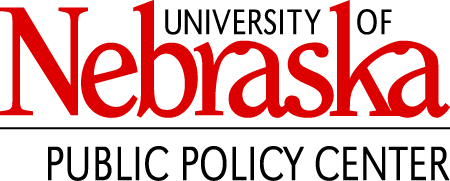Nebraska Disaster Behavioral Health Conference
The Nebraska Disaster Behavioral Health Conference is for psychiatrists, psychologists, social workers, mental health care providers, public health officials, nurses, clergy, emergency managers, and first responders to learn and recognize how to prepare and respond to the psychological effects of disaster and mass casualties.
2005 Conference
July 14-15, 2005
Embassy Suites Hotel
555 South 10th Street
Omaha, Nebraska 68102
Objectives
1
Recognize opportunities to improve cultural competence in service delivery following a disaster or critical incident.
2
Explore intervention strategies appropriate for use with children following a disaster or critical incident.
3
Identify the post-disaster needs of people who have experienced past trauma (e.g. war, abuse).
4
Examine the role of mental health in risk communication.
Conference Speakers
Elspeth Cameron Ritchie, M.D., J.D.
Department of Psychiatry, Uniformed Services University of the Health Sciences
Dr. Ritchie received a Bachelor of Arts Degree in Biology and Folklore and Mythology from Harvard College and her medical degree from George Washington University. She did a psychiatry internship, residency, and fellowship in forensic psychiatry at Walter Reed Army Medical Center. Her assignments have included: the division psychiatrist for the 2nd Infantry Division on the DMZ in Korea; 528th Combat Stress Control Detachment in Somalia in support of Operation Restore Hope; numerous positions at Walter Reed and the Office of the Assistant Secretary of Defense for Health Affairs. She is currently an associate professor at the Uniformed Services University of the Health Sciences and a psychiatry consultant to the Army Surgeon General.
Bruce Young, LCSW
Disaster services coordinator, National Center for Post Traumatic Stress Disorder
Mr. Young is editor of the NC-PTSD Clinical Quarterly and has been a consultant to FEMA, SAMHSA, U.S. Public Health Service, Department of Defense, and the American Red Cross. His disaster experience includes numerous natural disasters, the Los Angeles riots, the Oklahoma City bombing, the Alaskan airline flight 261 crash, and the events of 9/11. He has numerous publications related to disaster mental health and is co-editor of Group Treatments for PTSD. (1999).
Kermit Crawford, Ph.D.
Director of the Center for Multicultural Mental Health (CMMH), Division of Psychiatry, Boston University School of Medicine/Boston Medical Center
Rabbi Manis Friedman
Dean, Chana Institute of Jewish Studies
Ron Edmond
Senior technical specialist, Oak Ridge Institute for Science and Education
Elaine Enarson, Ph.D.
Lecturer, sociology and women’s studies, University of Colorado-Boulder
Dr. Elaine Enarson is a field researcher with a strong interest in violence against women in disasters and women’s work to reduce risk. She is co-editor of The Gendered Terrain of Disaster: Through Women’s Eyes and has published numerous studies on women, gender, and disaster.
Malia Robinson, Ph.D.
Independent consultant
Dr. Robinson has worked in Africa managing and advising psychological support programs for children affected by armed conflict. She has developed international programs for child protection and psychosocial programming. She has extensive experience in working with street children, children in foster care, runaways, and children in conflict with the law.
Conference Materials

Conference Agenda

Conference News
Additional Resources
Fact Sheets
- After the Disaster
- Childrens’ Reactions to Disaster
- Common Stress Reactions after a Traumatic Event
- Coping with the aftermath of Witnessing a Traumatic Event – DMHI
- Disaster and the Adult with Severe Mental Illness
- Drill Participant Stress Information
- Handling Disaster Related Stress
- Helping Children & Adolescents Deal with Grief – DMHI
- How to Talk to Children about Disasters
- Post Disaster Tips for People with Physical Disabilities
- Special Concerns of Older Adults after Disaster
- Talking to Children about Death
NCTSN Toolkit for Pediatric Traumatic Stress
- Pediatric Medical Traumatic Stress – Guide to Using these Tools Effectively
- Pediatric Medical Traumatic Stress – A Comprehensive Guide for Health Care Providers
- Medical Traumatic Stress – Brochure for Health Care Providers
- Traumatic Stress in Ill or Injured Children: Consider the DEF’s
- How to Assess: Distress
- How to Assess: Emotional Support
- How to Assess: Family
- At the Hospital: What Parents Can do to Help their Child
- At the Hospital: What Parents Can do to Help their Teen
- After the Hospital: What Parents Can Do
- Suggested Resources for Parents
Nebraska Ecumenical Disaster Response Network
Additional Conference Information
Contacts
University of Nebraska Public Policy Center
Disclaimer
This website is part of a coordinated effort on behalf of the U.S. Federal Government and the Nebraska Department of Health and Human Services Division of Public Health, Division of Behavioral Health, and the University of Nebraska Public Policy Center. Funding was made possible [in part] by U3REP190555 from the Office of the Assistant Secretary for Preparedness and Response (ASPR). The views expressed in written materials or publications do not necessarily reflect the official policies of the U.S. Department of Health and Human Services or the Nebraska Department of Health and Human Services, Division of Public Health; nor does mention of trade names, commercial practices, or organizations imply endorsement by the U.S. Government or the State of Nebraska.









